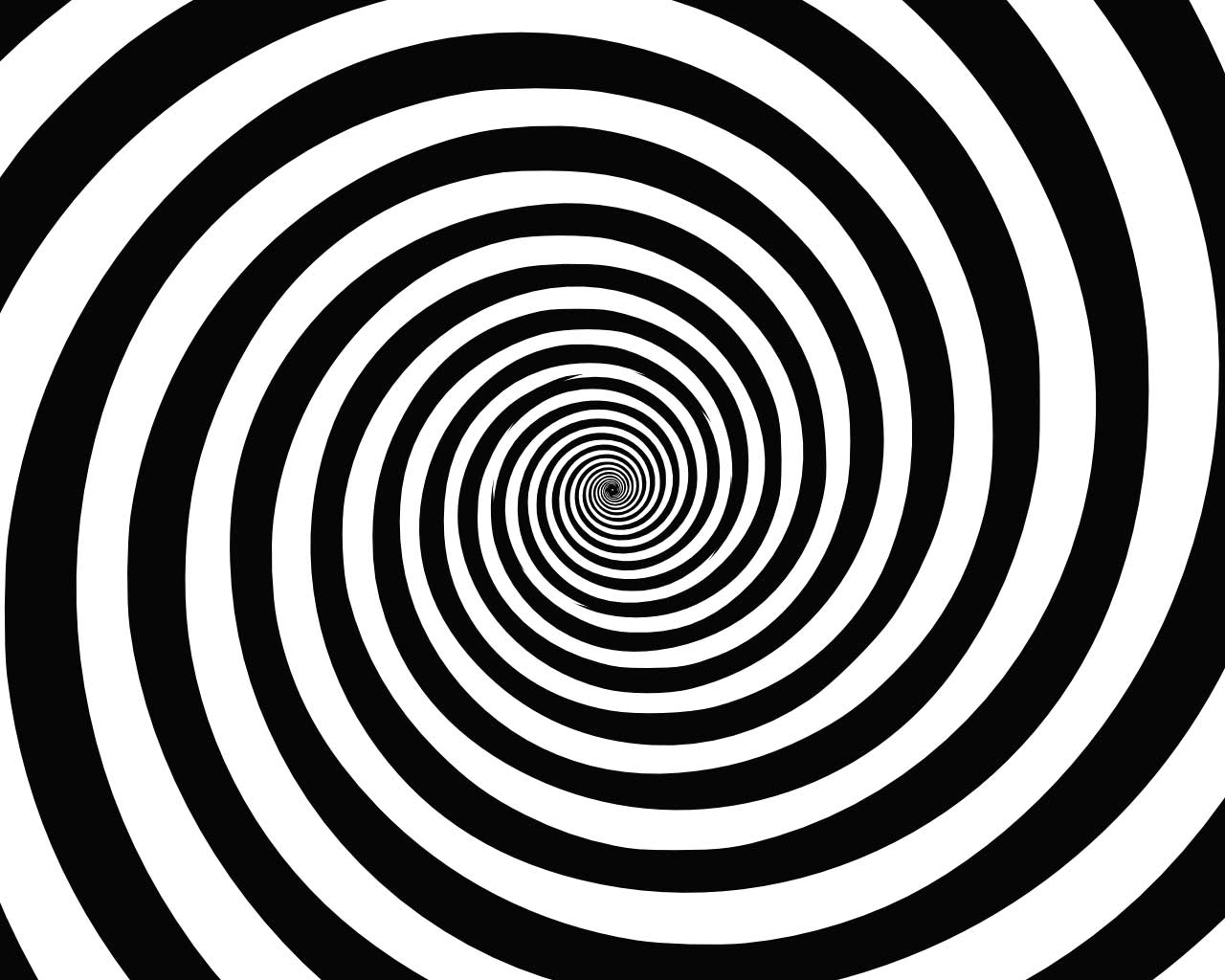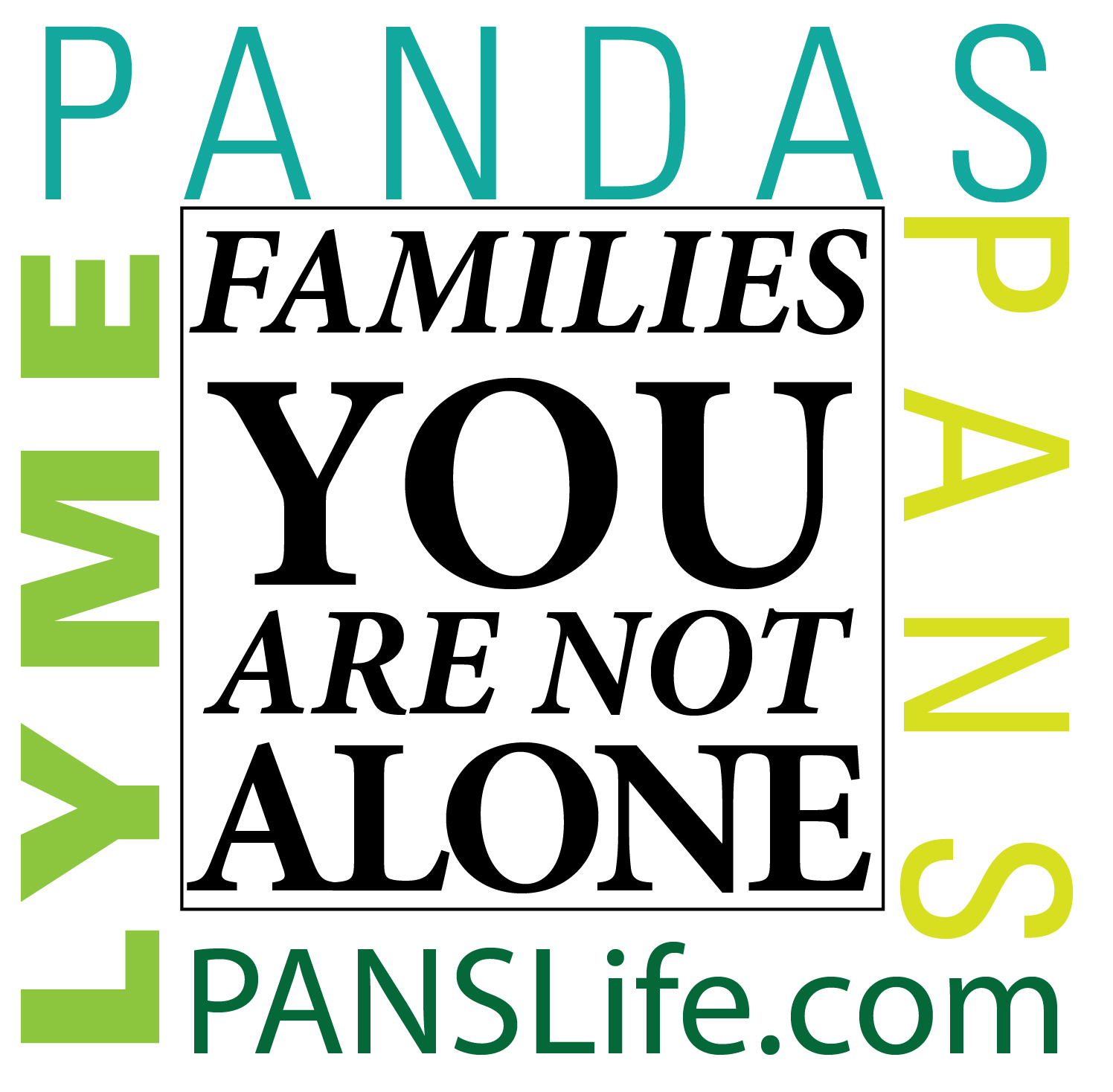 PANDAS and PANS Symptoms
PANDAS and PANS Symptoms
by Lisa Kilion
Walk into a psychiatrist's office, and your child who unknowingly suffers from PANDAS or PANS is likely to be diagnosed with an onslaught of psych issues. You will be told she has anything from bipolar to OCD, from tic disorders to anxiety, from schizophrenia to borderline personality disorder. I'm not judging people who have these other diseases. But PANDAS is not a psychiatric disease, although it certainly presents as being just that.
As I read through the different threads on the private PANDAS sites, I notice a pattern of peope questioning the multitude of strange symptoms. It's gotta be really difficult for parents of a very young child who has PANDAS, as there is not much of a history to use as a comparison. Many parents feel alone in dealing with these symptoms, and they wonder if these "abnormal" symptoms are normal for PANDAS.
Here's a shopping bag of symptoms. This list is by no means conclusive, nor does everything on this list pertain to my own child. The symptoms here do not necessarily indicate PANDAS, either. But if your children have PANDAS and show any of these symptoms, they are not alone.
1. Sensitive to germs. Your child, when exposed to colds (or flu or anything!) can go into a flare--that is, have a resurgence of OCD, tics, depression, rage, body aches. Children with PANS don't handle germs in a "normal" way. Once the body realizes there are germs, the antibodies begin attacking the brain. Not pretty.
2. Voices. Personalities. You have now entered the movie set of The Exorcist. Your child's once sweet voice may now sound demonic and monotone. Or babyish. Or switch from one to the other. Language will change, perhaps to simpler words, or slang, or curses. Stuttering occurs.
3. Eyes. Some parents see the pupils of the child dilate. Or a blank look, a faraway look, will emerge. Anger shows itself through the eyes, dark and flashing.
4. Pinocchio limbs. Disjointed, flailing arms. Legs that don't want to hold up the body of the child. You might think your child is faking it--falling to the floor, claiming she can't walk. But it's for real.
5. Low frustration level. When flaring, my own child can't handle more than one or two tasks at a given time. He was different as a little guy.
6. Tics. Facial tics. Body tics. Verbal tics. Clapping. Your child might hit himself. And beg you to help him stop.
7. Intrusive thoughts and OCD. Might not be obvious to the rest of the world. And the OCD can present in so many different ways, from counting steps to only using certain utensils to fearing the death of a parent.
8. Sudden processing issues (can go with low frustation level.) And memory issues. You might find yourself telling your child the same thing several times, particularly if it's something your child doesn't want to do. But math ability and hand-writing can be devastatingly affected, and I wonder every time my (healthy) daughter experiences some difficulty with either of these. Watch out for dysgraphia.
9. Rage and headaches. I have read about children smashing TV sets and computer screens. At a much younger age, my own son punched in the middle of his 90-year old bedroom door. Anger. Recently, we learned that my son's rages were connected to migraines.
10. Incontinence and Enuresis. I've read about defecation as well. Remember--it's NOT your child's fault, even if she pees all over the floor. Of course, that doesn't mean she gets out of cleaning it up, depending upon her current state of mind.
11. Secrets. Your child might be trying to keep his symptoms from the eyes of the outside world, which results in the outside world not believing you and even blaming you for these symptoms. It happened with my family. My son was quite clever and controlled for periods of time and would hide any behaviors while at school or even at the doctors. When we told our child to "be himself" for a psychiatrist who wasn't believing us, and he finally listened, the psychiatrist got angry with him and told him that the behavior wasn't acceptable and to control himself.
12. Interrupted sleep. Heck, even falling asleep is an issue in my house when our child is not well. We use melatonin. And an hour of gentle back scratching. Many children can't sleep in their own beds. You might enjoy having a little one crawl into your bed at night, but even teenagers suffering from PANS are doing this. It's not manipulation but you might want to set up a mattress or sleeping bag on the floor of your room. These children are truly desperate. See Separation Anxiety.
13. Sensory issues. The sound of a snowjacket being scratched. Loud music. Lights. Crowds. The taste and texture of foods, which can lead to anorexia or difficulty following a ____-free diet (fill in the blank: gluten, dairy, soy, etc.)
14. Different states of consciousness. Your child is wide awake, or so you think, because his eyes are open. But he acts "weird." His personality is different or he's raging. And then, he "wakes up" and asks where he is or what happened or wonders if he was raging because he felt that way but doesn't really recall. Sleep-walking as well.
15. Silliness. Super happiness. Wildness. Impulsivity. Mania. Yet she's sad and just trying to cheer herself up. These look like mood swings to the person who doesn't know about PANDAS. Might make you think of bipolar disorder.
16. Separation anxiety. Oh boy, this is a big one. From following you everywhere in the house (upstairs, downstairs, into the bathroom lest you close the door in her face,) to not wanting to go to camp or school, to crawling into your bed at night (even if your child is a teenager.) The worst thing you can do is place your child in a psychiatric hospital that doesn't understand PANDAS and separates your child from the person she needs the most--you. If you really need a hospital, find one that has PANDAS experts, like Mass General. And stay with your child the entire time.
17. Catatonia. Your child could possible experience this. What you might notice is your child going into a daze during any normal activity. He might have difficulty speaking, then feel confusion, and ultimately stop talking, smiling, laughing, crying with the result being no facial expression and no registering pain, taste, emotion at all. You might need to feed, bathe, and bathroom your child. Something similar to this was reported recently about a child who was incorrectly hospitalized and the hospital would have let the child soil her sheets had the parents not been there to carry their child to the toilet.
18. Loss of passions and interests. Loss of desire to live like this. Talk of ending life or of wishing to be a baby again, to live before the PANDAS hit. Blaming parents (this happened in the beginning for us--we had to be bad parents. Got this from him and from the doctors! Now, when our son feels good, he's grateful for all the support he gets from us and from the fact that we will never give up on him.)
19. ADHD symptoms. This includes everything from impulsivity to disorganization.
20. Stuttering and word mix-ups.
21. Bad reactions to typical psychiatric medications. Children with PANDAS and PANS don't always react well to psych drugs--in fact, these medications can result in a worsening of symptoms, including depression.
22. Depression. If your child has said, "I wish I were never born," she is not the only one. In the beginning of this, my son would say to me, "This is a nightmare. I just want to wake up from this." He has asked me if there is an end to this--will he ever be better (after all, I promised I'd do everything in my power to get him better.) Most people with chronic disease contend with depression, but a child with her brain being attacked is definitely going to feel it for a zillion reasons.
23. Food restriction or avoidance, even to the point of anorexia.
24. More, much more. If you note a symptom that is not listed here, just send me a quick email and I'll add it. This is a living, changing document, for we are just at the stages of publicizing PANDAS. If it takes a village to raise a child, it will take all of us to bring our PANDAS-stricken children to health again.
The challenging aspect of having these symptoms is that they wax and wane and morph. Some children never get certain symptoms and others have them all. It's cafeteria style at its finest. So if you think something is strange about your child, think again. What's strange is that we don't yet have enough research to support us as we do everything in our power to help our children overcome this autoimmune disease. Someday, children will be able to walk into any pediatrician's or mental health professional's office and immediately be given the correct tests to gauge whether their condition is the result of PANDAS. Until that day, it is our duty to share and educate.
@Lisa Wolk-Kilion. This document may be shared and reproduced as long as credit is given to the author.
